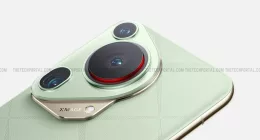Electric cars give you a lot more comfort than normal ones as you do not need to worry about fuel, pollution etc. But still, most of today’s cars require you to use charging cords and cables which can be one hectic job. Nissan, and many other automakers, are trying to solve just that issue. The companies, if they have their way, will soon bring wireless inductive charging systems and smart charging controls to every electric car out there.
Nissan is reportedly working on a system that is rated at 7 kW. This system will be a huge upgrade from the current one from the company which is just under 3 kW (which the company calls a tease). A company official after at Nissan Technical Center in Atsugi, Japan in a recent visit after the Tokyo Motor Show, “3 kW is not enough, so we’re focusing on higher power.”
This new system could be easily used to charge high capacity batteries for long distance travels like 60 kW packs that could take you about 200 miles anywhere. This could be a premium option for the Leaf or another vehicle.
Nissan has been working on wireless charging technology for many years now. We also saw the charging-systems supplier Bosch even provide a wireless-charging system that can be fitted to your garage floor and either the Nissan Leaf or Chevrolet Volt.
The new system the automaker is working on is, reportedly, a lot more stable and flexible. Officials have noted that the vehicle can be positioned up to 4 inches to the left, right, fore, or aft of the ‘bullseye’ for wireless charging. The system will also work on a medium gap between the charging pads. This means that we get around 4-6 inches between the inductive pads which is an upgrade from the just under 4 inches current standard.
Also, the efficiency of the charging system has been increased to 85 percent which is a significant raise from current standards.
This will be a more standard height for normal passenger vehicles. The automaker is also working on a system to cover a gap target of over 6 inches, which might be a better match for crossovers.
Apparently, the systems have been carefully designed for EMF and will easily pass concerns about interference for pacemakers and other devices.
The Japanese automaker is starting fleet tests of the new system this year, and plans to get other automakers on board with the same standard in the next few years. Standardization could well take well over a decade for the company which the project leader aims at. The industry can’t have another CHAdeMO and Combo (the two standards for Level 3 fast-charging), the project leader and others argue.





